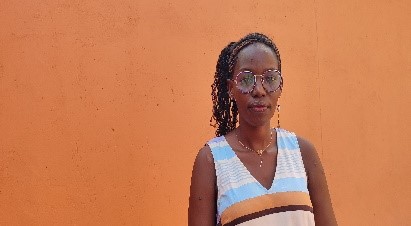South Sudanese civil society activist Kevina Aballo John has criticized the restricted access to influential leaders and donor organizations, calling it a disservice to the nation.
The executive director of Resilience Organisation, a local NGO focused on youth affairs, Aballo blamed powerful stakeholders for creating barriers between ordinary citizens and decision-makers.
In her six years of advocacy, the young activist said gaining access to top leadership has been her biggest challenge—one sometimes compounded by her petite stature.
“I remember raising my hand two or three times in meetings to speak, only to be ignored,” Aballo said. “When I stood up to ask why, someone told me in Arabic: ‘Ita bes benia soker, ita dere kelem shunu?’ (You’re just a small girl—what do you want to tell us?).”
She called the remark bullying, insisting her ideas could benefit the country.
Another hurdle, she said, is restrictive donor funding that often doesn’t align with local priorities.
“We get funding, but only for very specific programs, with strict conditions,” Aballo said. Such limitations, she added, hinder their ability to respond to emergencies like sexual violence cases.
Despite the obstacles, her group continues pushing leaders to uphold the law.
Aballo, who holds a degree in mass communication with training in gender and child protection, grew up in a rural village with no schools. Organizations like Catholic Relief Services and Norwegian People’s Aid helped transport her to Uganda for primary exams.
“I went with empty pockets. It wasn’t easy,” she said.
Now, she’s built her networks from scratch—no family members held government or military influence. Had she not become an activist, she fears she’d be trapped in village life, powerless against gender-based violence.
“I’d have seven children, be digging, drinking, and helpless,” Aballo said. “Instead, I’m here speaking out.”
She urged full implementation of South Sudan’s 35% affirmative action for women in leadership.
“Gender equality starts in school. You must lead now,” she told young girls.
As a Gender Equity and Social Inclusion trainer, Aballo encouraged women to speak up: “Advocate for the voiceless. It inspires others.”




